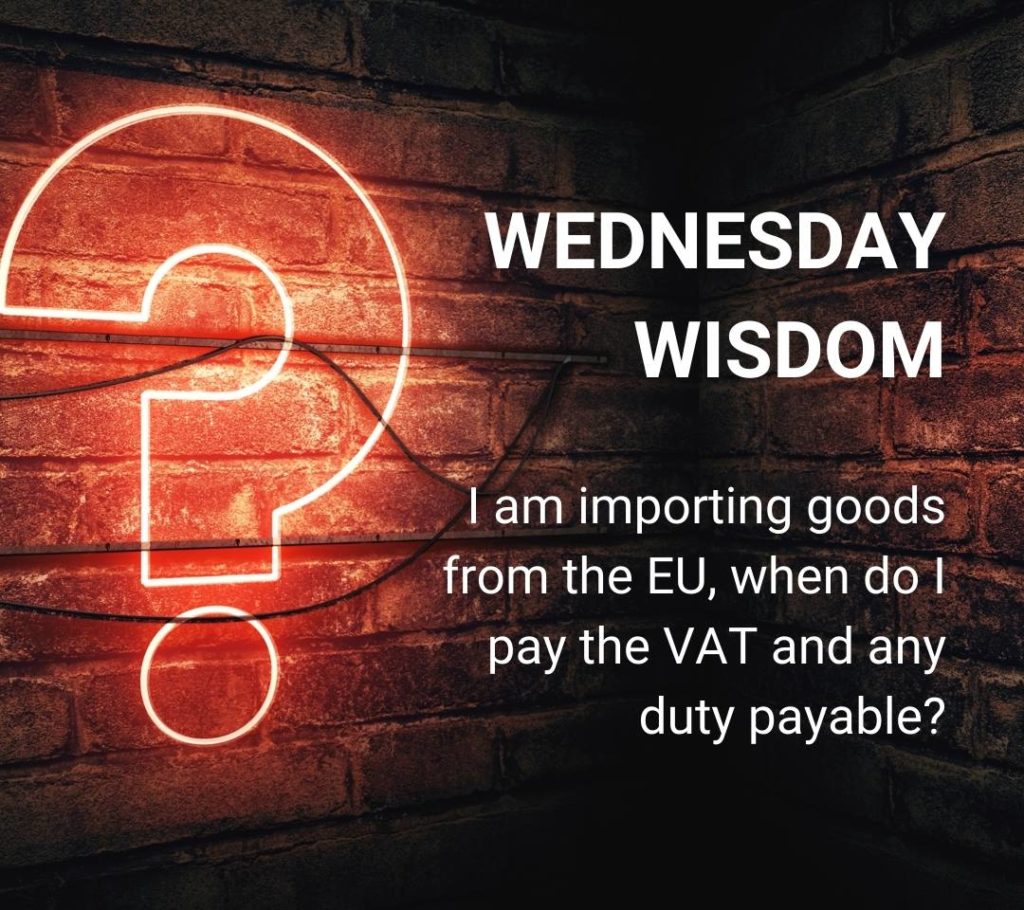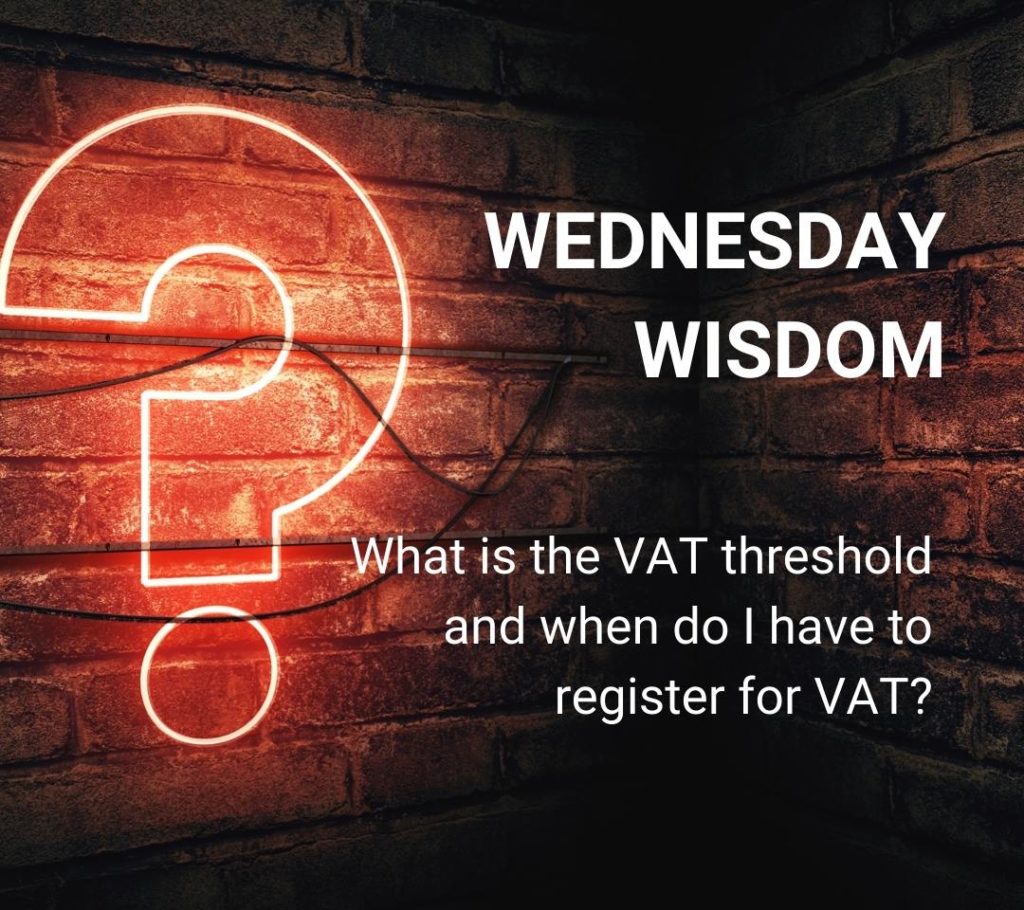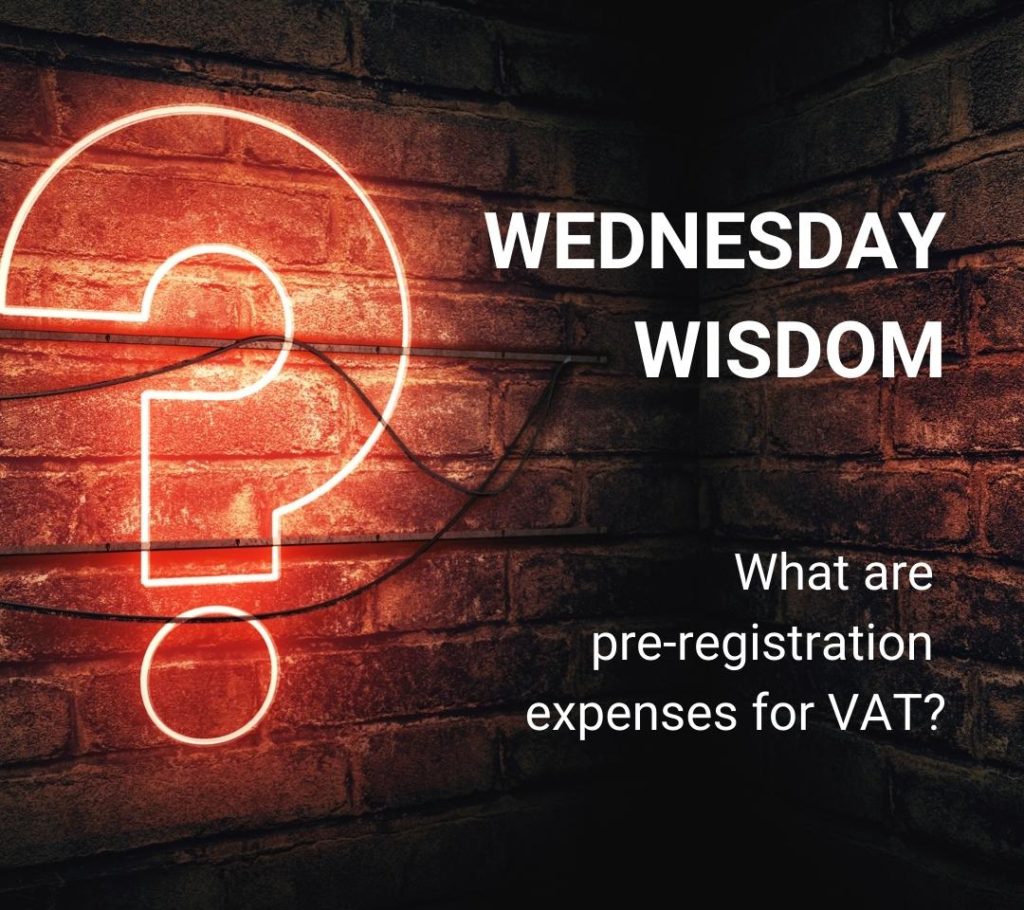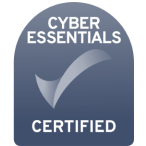The existing rules for imports from non-EU countries now apply to imports from the EU, but with some changes. The UK government has introduced ‘postponed accounting’ for import VAT on goods brought into the UK with effect from 1 January 2021. This means that UK VAT registered businesses importing goods to the UK will be able to account for import VAT on their VAT return, rather than paying import VAT on or soon after the time that the goods arrive at the UK border. This will give a cashflow benefit.
This important relaxation applies to imports from the EU and non-EU countries. Postponed accounting can be used by all VAT registered business in the UK and no separate application is required.
However, customs declarations and the payment of any other duties will still be required. Customs duty (tariffs) will apply to some goods and excise duties will continue to apply to tobacco, alcohol and certain energy products.
Customs and excise duty payments can be deferred to be settled monthly with a duty deferment account. Businesses need to register with HMRC to open a duty deferment account and will need to provide a bank guarantee.
From 1 January 2021, VAT on imported goods with a value of up to £135 is collected at the point of sale not the point of importation. This means that UK supply VAT, rather than import VAT, will be due on these items.
Business-to-business sales not exceeding £135 in value are also be subject to the new rules. However, where the business customer is VAT registered and provides its registration number to the seller, the VAT will be accounted for by the customer by means of a reverse charge.







